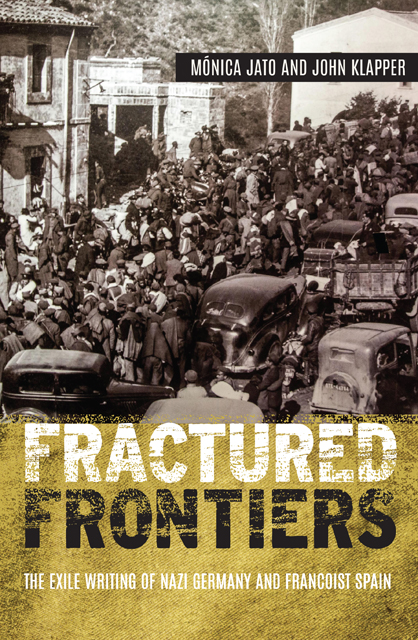6 - Destiempo: The Challenges of a Long Return in the Spanish Context
Published online by Cambridge University Press: 18 January 2023
Summary
Spanish exiles trying to return home experienced similar challenges and difficulties to those of German exiles. Those who came back during the dictatorship and endured the hardships of the regime defied simplistic labeling or categorization: Were they still to be considered exiles, or did they now join the group of so-called inner exiles? Those who returned during the transition to democracy found a country undergoing rapid change, reluctant to dwell on its recent tragic past. Although admired, Spanish exiled writers, like their German counterparts, appeared at best as fossilized relics of a closed chapter. The following sections first explore the complex experience of return, both from 1939 to 1975 and during the transition to democracy, before considering three case studies that illustrate the historiographical consequences of destiempo (see chapter 2) and their impact on the inner/ outer debate.
When Does Exile End?
When philosopher María Zambrano returned from exile on November 20, 1984, newspaper headlines announced with great fanfare that, with her return, the Spanish Republican exile of 1939 had ended. After nearly fifty years abroad, Zambrano was the last of the Republican exiled intellectuals to come back. The date had not been chosen at random: it was exactly nine years since the death of the dictator, and her homecoming therefore acquired symbolic value, marking the end of the dark age that had, in her own words, “drowned” the democratic dawn of the Republican era.
Indeed, the death of the dictator did not prompt the immediate return of exiles. Like Zambrano, many felt reluctant to resettle in Spain because, although Franco was finally out of the picture, they questioned whether there were any real guarantees that his regime would not continue—that there would be a full restoration of democracy and, ultimately, freedom. While it is true that from as early as the 1940s, some exiles had been gradually returning—for example, Juan Gil-Albert in 1947 and Benjamin Jarnés in 1948—others did not rush to pack their suitcases, even in 1975. They preferred to wait for these guarantees to be realized, for the democratic ideals that had encouraged the spirit of the Republic to be renewed.
- Type
- Chapter
- Information
- Fractured FrontiersThe Exile Writing of Nazi Germany and Francoist Spain, pp. 179 - 210Publisher: Boydell & BrewerPrint publication year: 2020



